Why you should use Responsive Web Design?
Responsive web design has dominated websites for the past few years, empowering the way businesses build their online presence. A website with responsive web design is a site that can adapt the screen it is being used on, regardless of what device it is. The website automatically adjusts the design layout or reformats to give the user a better experience, that is well suited to their device and can give your website several benefits including being in line with Google recommendations.
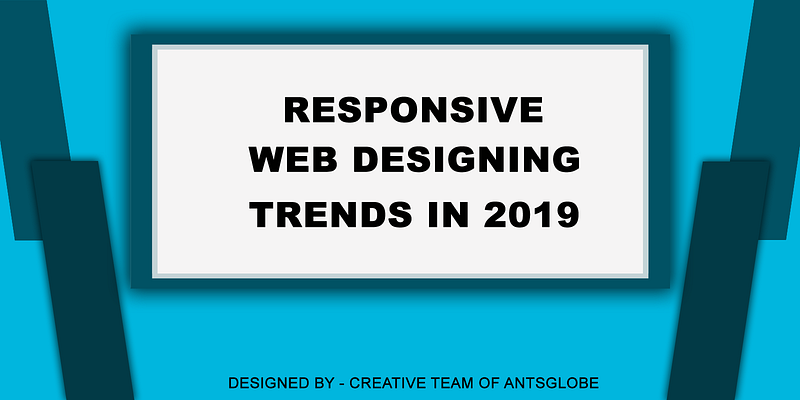
Responsive web design was launched back in 2010 and is recommended by the experts since 2015. A responsive design can improve user experience, as the amount of devices that connect to the internet grows, so does the number of screen sizes, aspect ratios and pixel densities or whether they are on a Desktop or a Smartphone or Tablet.
1. Improved Website Visitor Experience
A responsive website leads to a better user experience. A dominant factor showing the quality of user experience is the time they spend on your website. If they find it hard to navigate or use because they’re forced to constantly pinch and zoom, they won’t stay on your website.
The visitors on your website won’t face difficulties while accessing menus, submit buttons, web-links, or filling out forms, if your website scales and respond to the change in screen size according to the device. As a result, their user experience will be better and they’ll spend more time on your site. Improved user experience and site usability can then lead to more word of mouth referrals and new customers for your business.
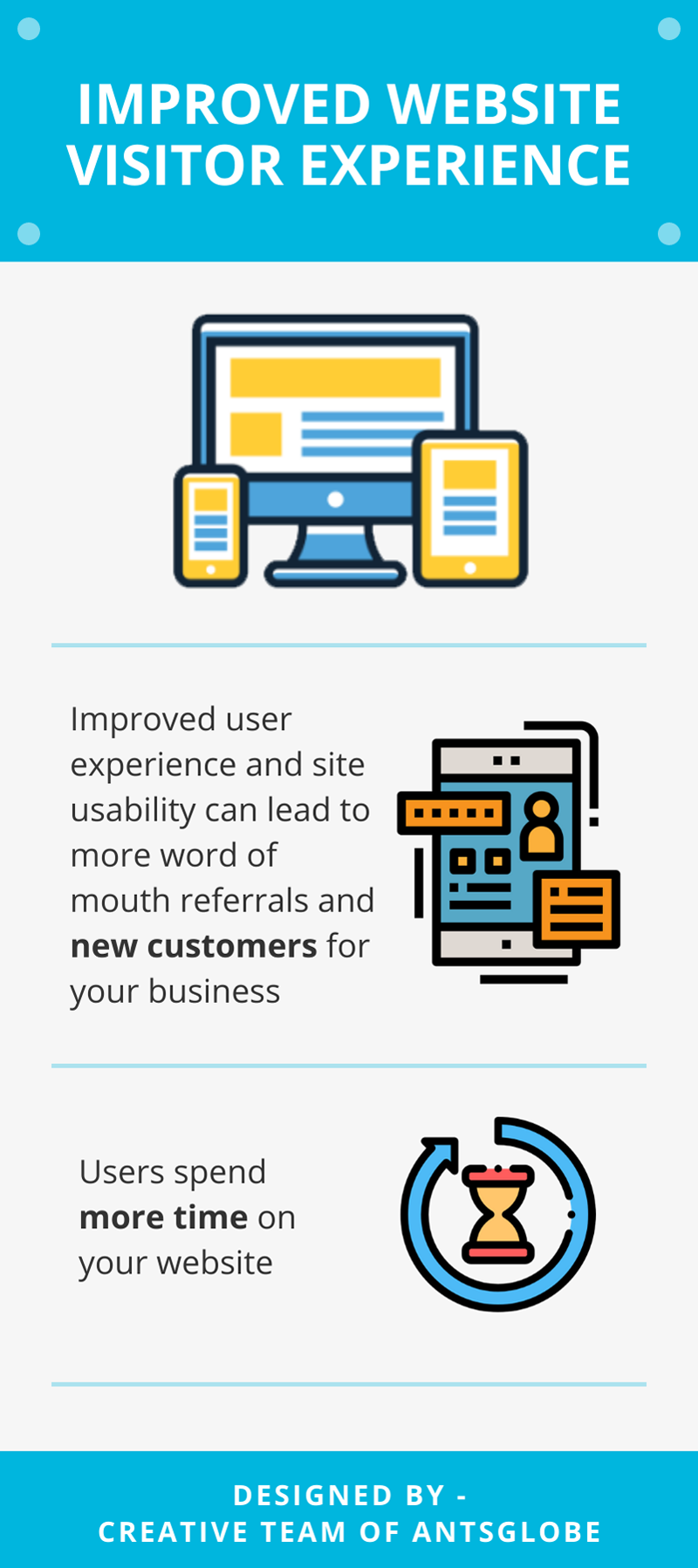
2. Increases Website Mobile Traffic
After 2016, mobile web usage had overtaken desktop, which clearly shows people prefer browsing on Smartphones and Tablets instead of a Laptops or Desktop computers. This highlighted a dramatic shift in behaviour; with website visitors using their mobile devices to shop online, carry out online banking and scroll through social media. According to the statistics of the last quarter of 2017, nearly 52% of web traffic all over the globe originated from mobile devices. That accounts for more than half of all Internet traffic and goes to show that you cannot afford to forego responsive web design.
The reasons mentioned above strongly justifies the importance of investment in responsive web design and your business needs a website that works well on a smartphone or other mobile device screens, due to the sheer amount of people who could be using your website through a Smartphone or tablet.
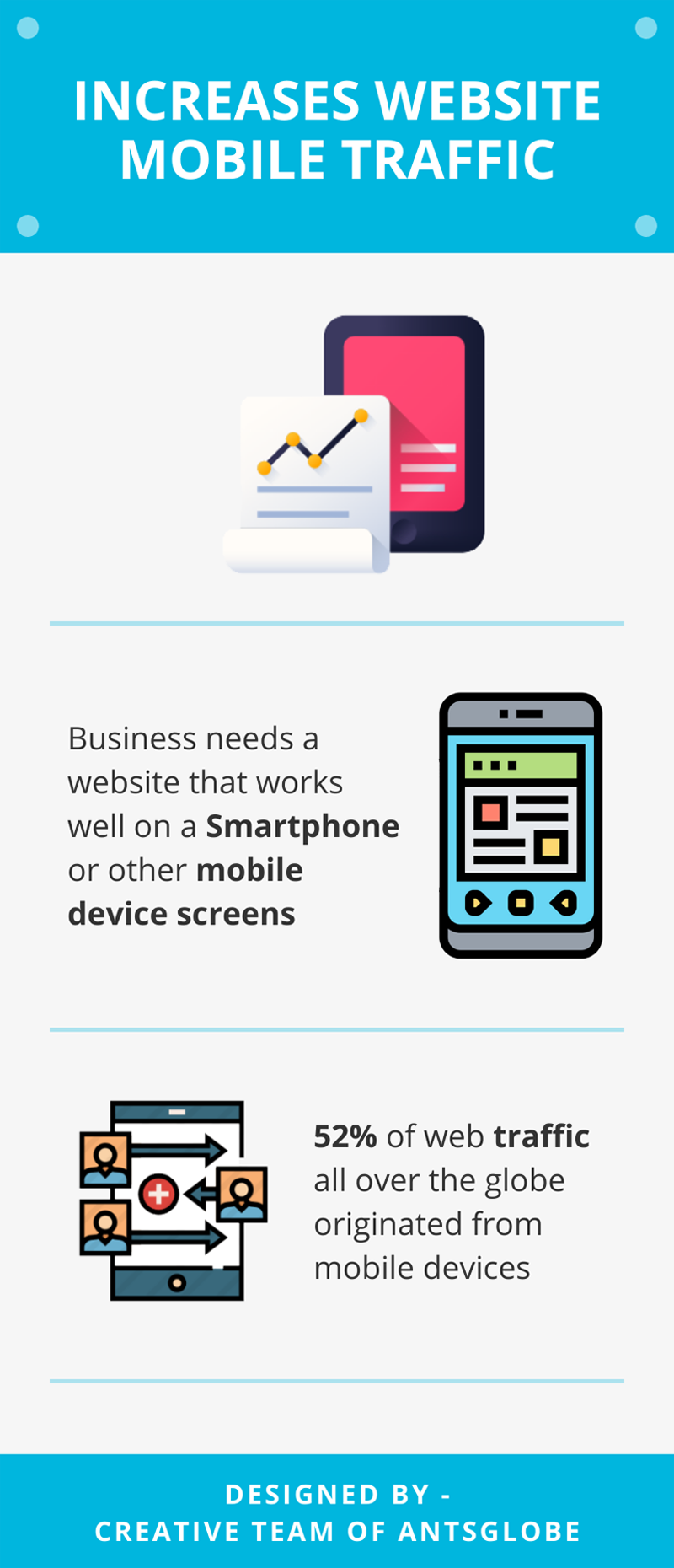
3. Faster Website Loading Times on Every Screen Size and Devices
Responsive websites tend to load faster on all devices, but especially on Smartphones and tablets. Thanks to responsive images and fluid grids, it takes significantly less time for a page to load, which has a direct impact on the duration of your user’s visit. Many of the online research reports show that 52% of mobile visitors will leave a website if pages take more than three seconds for loading. The same research shows that websites that load fast benefit from more time spent on-site as well as improved conversion rates. This speaks volumes about responsive web design importance.
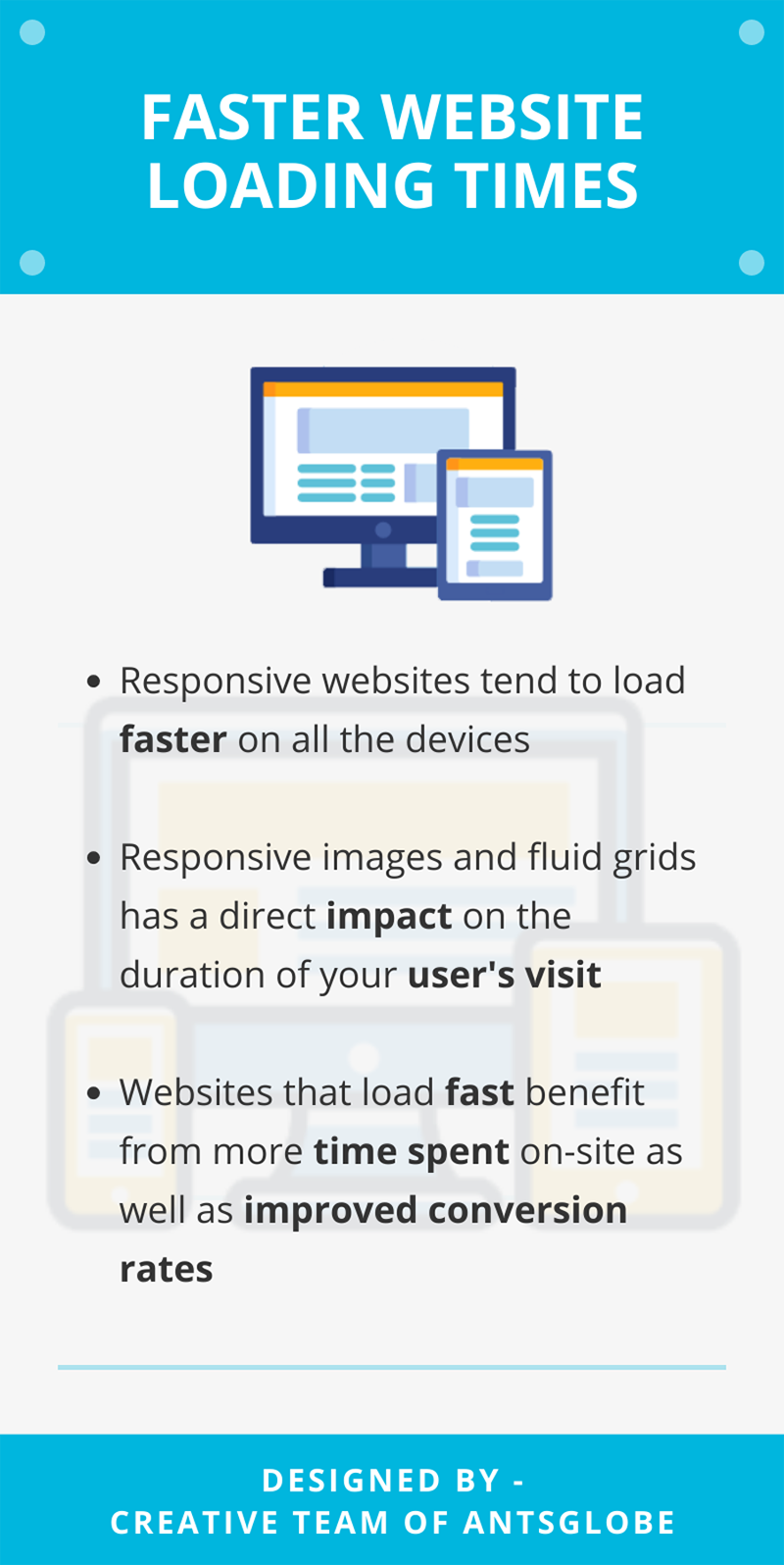
4. Better Ranking and Search Engine Optimization Results
Another advantage of a responsive web design is improved search engine ranking. Since 2015, Google takes into consideration your website responsiveness as one of the signs that determine the rank of your website in the search engine results page. If your website isn’t responsive, the search engine giant will place it in lower ranks on the search engine result pages whereas if it passes the mobile-friendly test your website will be awarded with higher ranks.
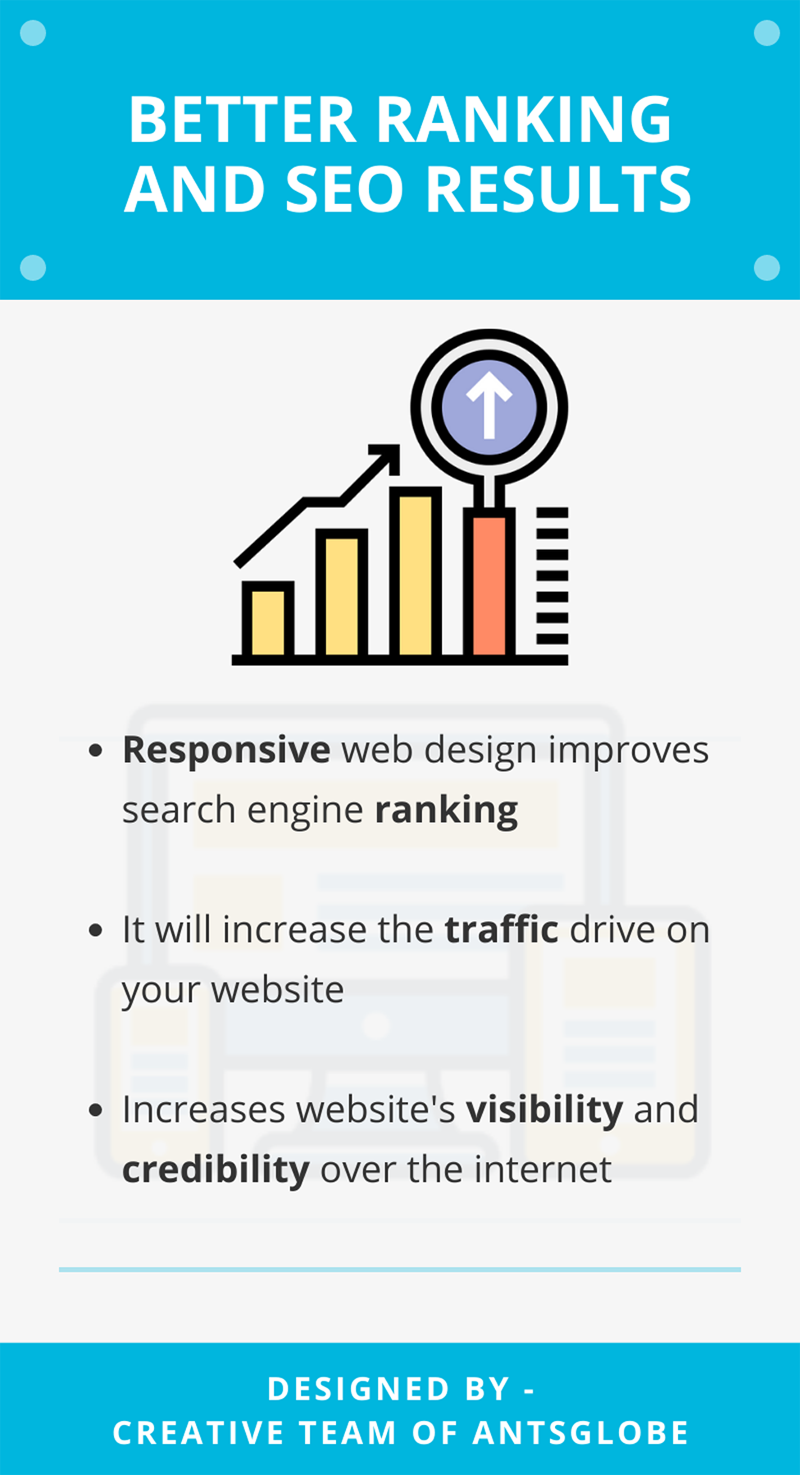
5. Google Recommendations
As of 2018, Google announced that they were migrating sites that followed best practice in mobile-first indexing. In the past, Google crawled and indexed the desktop version of a website, but they began to notice that this caused problems for mobile users. Mobile-first indexing means that Google now primarily crawl index and rank the mobile version of the website. Due to this, it’s more important than ever that you not only have a responsive web design but also a solid mobile design of your website too.
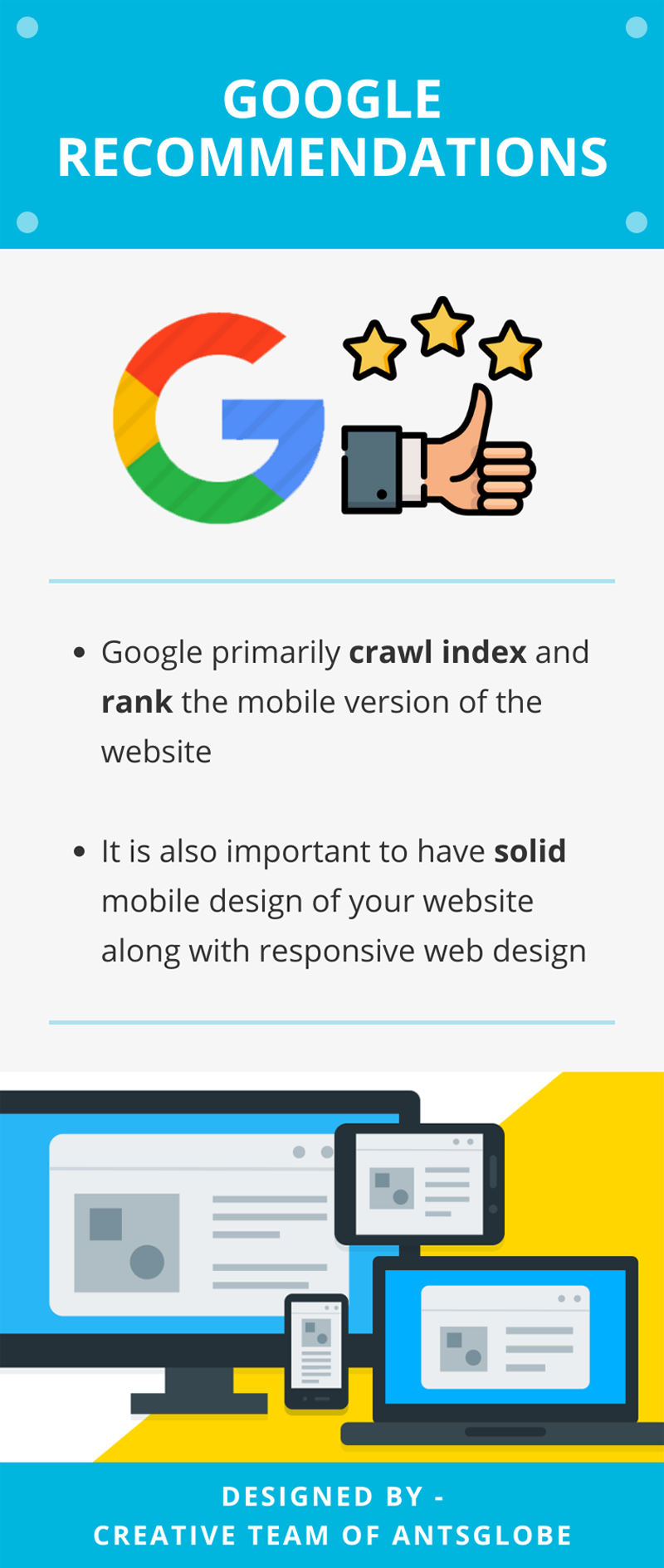
Benefits and importance of responsive web design
The content and WebPages present on a Responsive website are highly flexible across all screen devices and resolutions. A responsive web design facilitates, unified and easy navigation despite of different screen sizes, whether you’re viewing a website on your Smartphone, Notebook or a laptop. It provides the best experience to the user across the board, a responsive web design supports your user to read and navigate the website with ease, minimum resizing and scrolling.
Responsive web design can improve the user experience which will translate into a positive perception of your brand and business. If your website is easily accessible to customers from all the platforms, they’re expected to return to you for more business in the future, and it signifies an increase in conversion rates for your website. In a world where huge web traffic originates from mobile devices, you must be accommodating this factor into your website.
Other than Responsive web design, the most important ranking factor is Mobile-first indexing. Responsive websites load faster which is likely to raise your ranking and minimize your bounce rate. Responsive web design supports easy social sharing, encouraging you to grow a more significant audience for your brand.
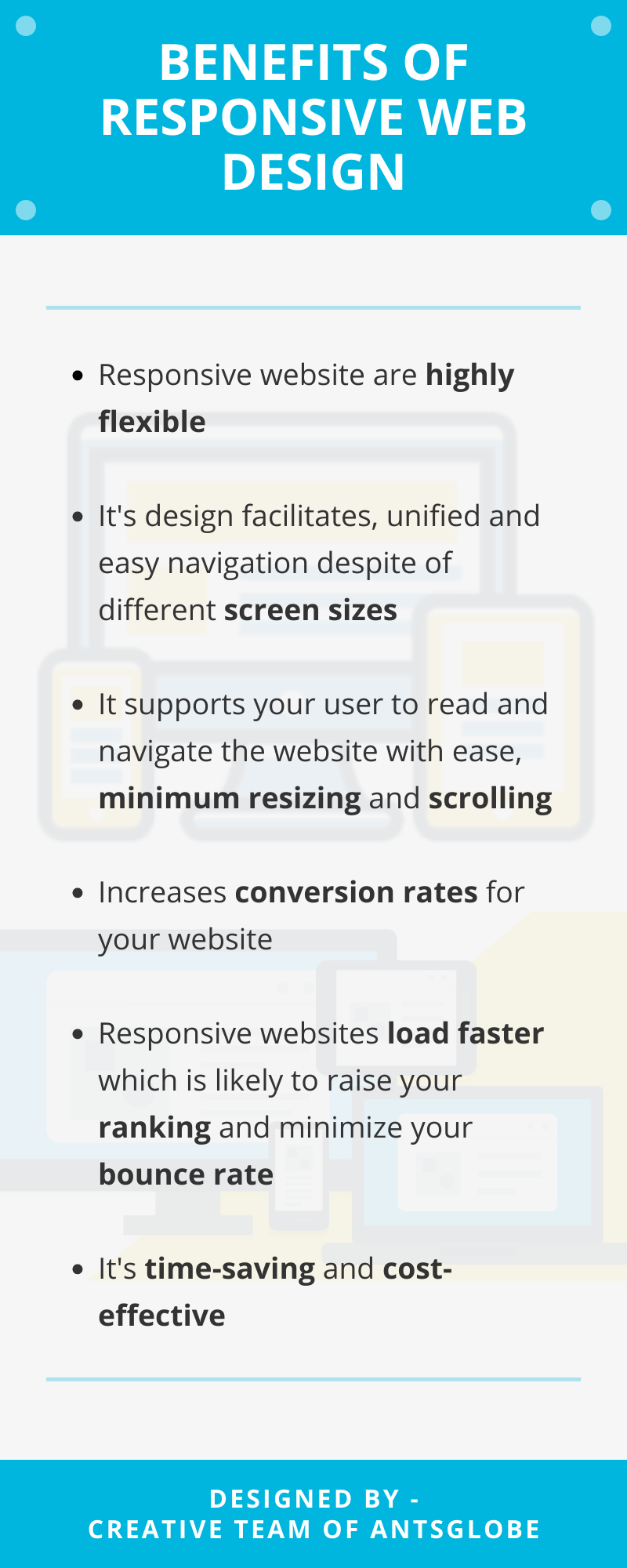
Website maintenance and SEO campaigns are also a much smoother process with a mobile-friendly website. Responsive web design implies you have only one website to look after; it’s time-saving and cost-effective as compared to making a stand-alone mobile application along with your desktop website.
With mobile-friendly websites now being an industry standard, especially thanks to mobile-first indexing, takes a minute to ensure your web design is the best it can be.



Comments
Post a Comment